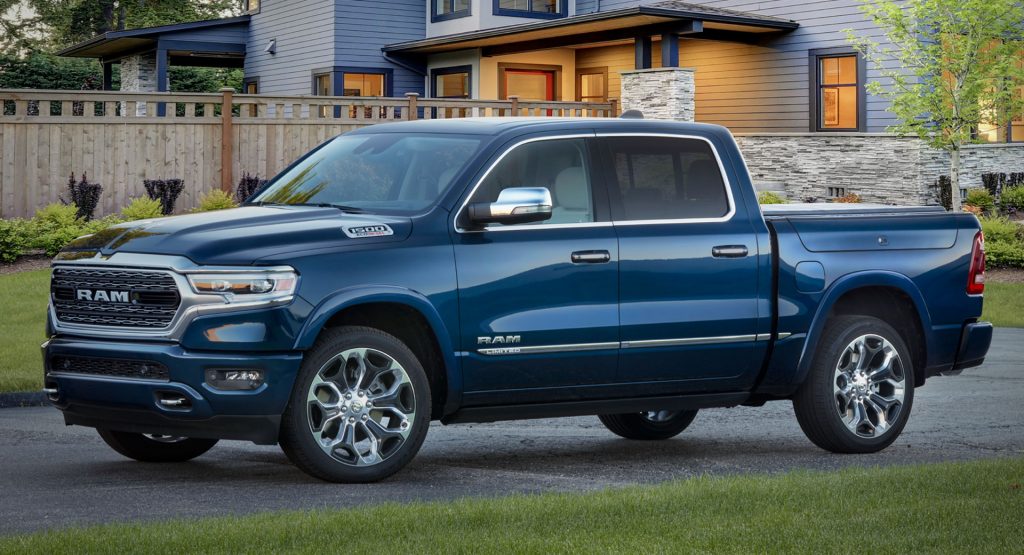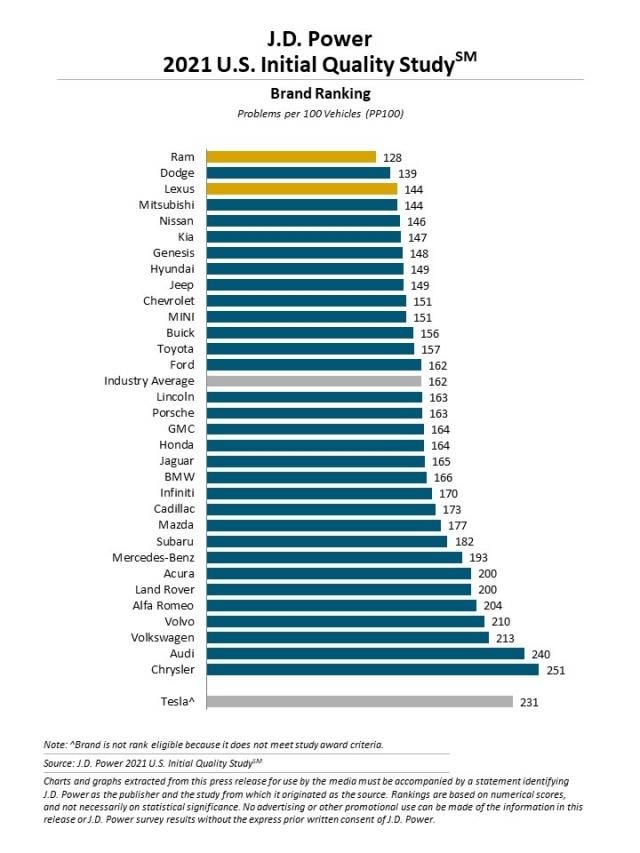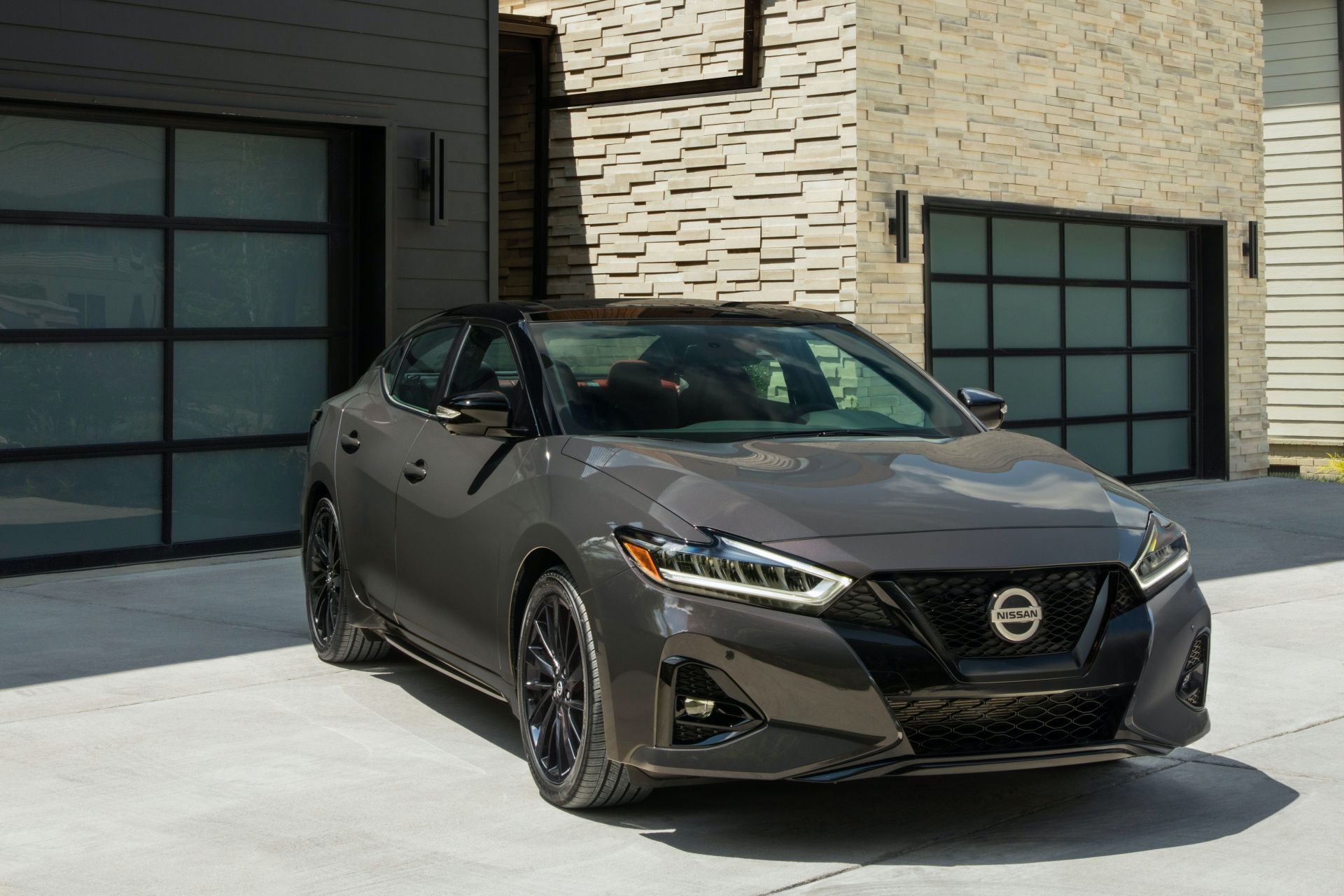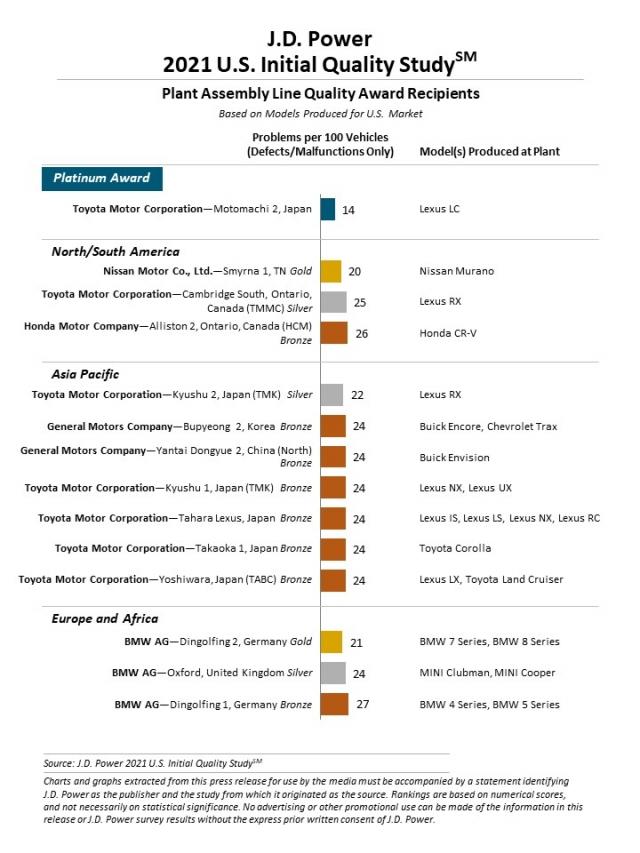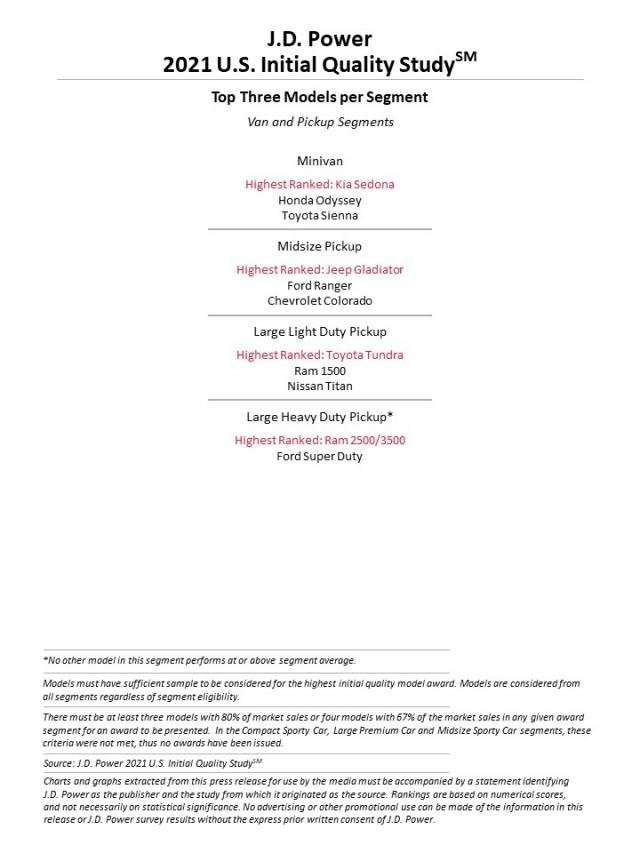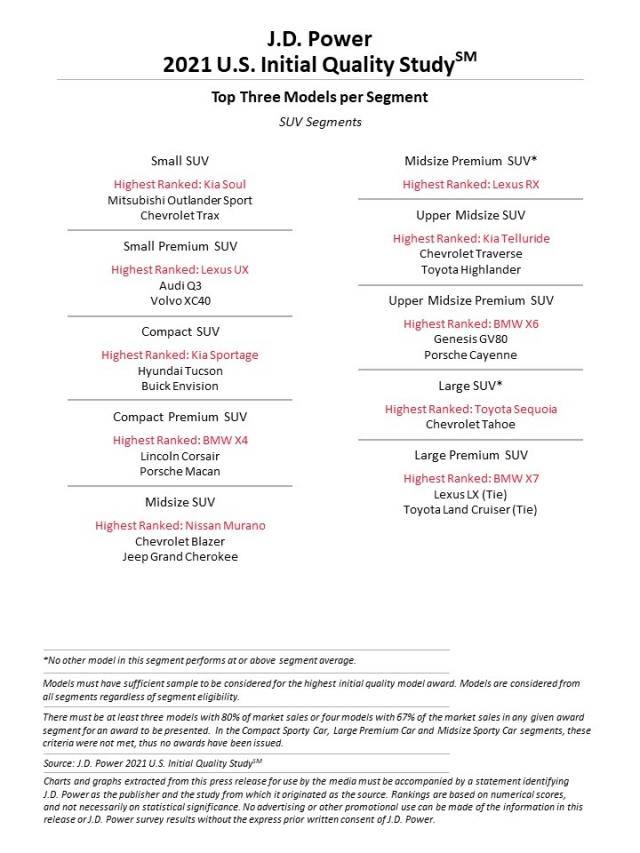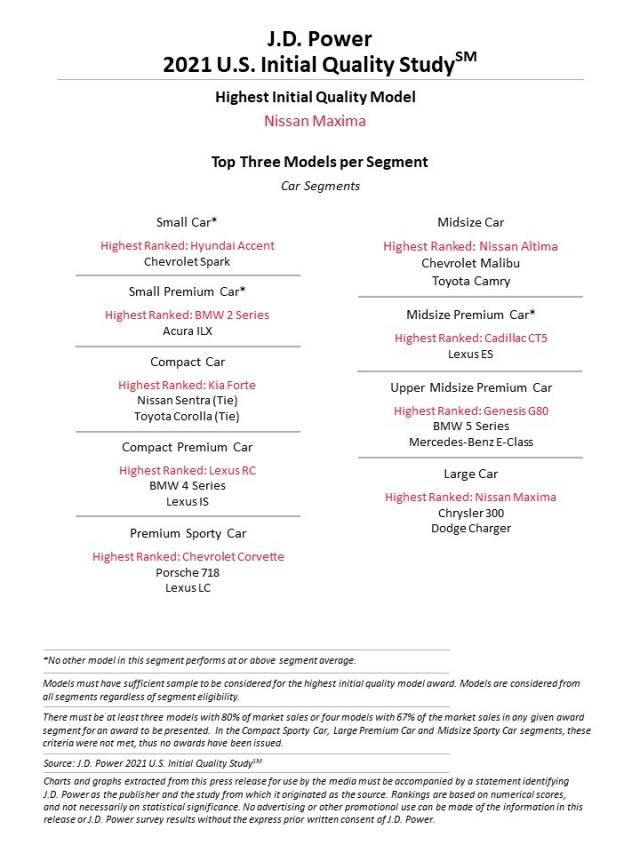J.D. Power has just published its annual U.S. Initial Quality Study and for the first time, Ram took out top honors.
The study measures the number of problems experienced per 100 vehicles (PP100) during the first 90 days of ownership. This year’s study surveyed 110,827 owners of 2021 model year vehicles. A lower score is better and the industry average this year of 162 PP100 was 4 PP100 better than in 2020. What’s more, 20 of 32 brands improved their quality from 2020.
Read Also: Stellantis’ Jeep, Alfa Romeo, Ram, Chrysler Hit Rock Bottom In U.S. Customer Service Satisfaction
The best-placed automaker was Ram with a reported 128 PP100, placing it above Dodge with 139 PP 100. Other leading car manufacturers included Lexus (144 PP100), Mitsubishi (144 PP100), Nissan (146 PP100), Kia (147 PP100), Genesis (148 PP100), Hyundai (149 PP100), and Jeep (149 PP100).
Among the worst-performing brands were Land Rover (200 PP100), Alfa Romeo (204 PP100), Volvo (210 PP100), Volkswagen (213 PP100), Audi (240 PP100), and Chrysler (251 PP100). Tesla received a rating of 231 PP100 but it isn’t officially ranked among other brands because Tesla doesn’t grant J.D. Power permission to survey its owner in 15 of the U.S.’s states. Its score was calculated based on a sample of surveys in the other 35 states.
The individual best-performing new car was the Nissan Maxima with just 85 PP100. Hyundai Motor Group performed the best of all brands with seven of its vehicles ranking the highest in their respective segments. These were the Genesis G80, Hyundai Accent, Kia Forte, Kia Sedona, Kia Soul, Kia Sportage, and Kia Telluride. Toyota, BMW, and Nissan also performed well.
The study also determined that one in four of all problems cited by new-vehicle owners were in the infotainment category with six of the top 10 problems being infotainment-related.
“Owners are caught in the middle when vehicle and phone technologies don’t properly connect,” vice president of automotive quality at J.D. Power Dave Sargent said in a statement. “This year there are many examples of smartphone technology not working as intended in new vehicles. With more vehicles being fitted with the wireless technology owners want, the study reveals an increase in connectivity problems between smartphones and vehicles, leaving many owners unhappy.”



